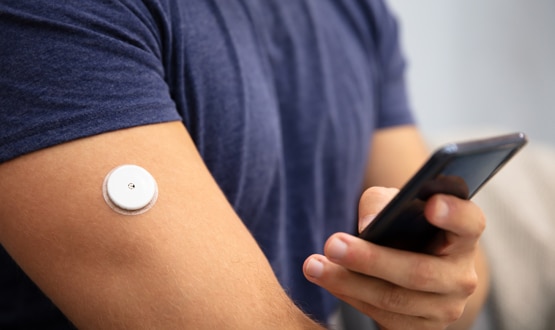Ex-Toumaz boss launches Isansys
- 21 January 2011

The former chief executive and co-founder of AIM-listed wireless body monitoring firm Toumaz Technologies has launched a new company focused on end-to-end patient monitoring services.
In an interview with eHealth Insider, Keith Errey said that privately funded Isansys Lifecare will focus on building the evidence base for continuous patient monitoring technologies.
Errey said: “We’re starting with building the evidence base to show the clinical and business benefits resulting from utlising the data provided to prevent adverse patient incidents or hospital re-admissions.”
Toumaz Technologies focused on technology development, with particular expertise in low-power signals processing and wireless technology to create unobtrusive vital sign monitors.
Isansys will also offer services that include licensing, regulatory approvals and trials design.
“You really do need to be able to provide the complete platform from collecting patient monitoring data through to delivering it to authorised clinicians,” said Errey.
“We’re talking about giving doctors and clinicians with the data they need to do their job. This is just a way to make that happen in real time.
"Once you start to continuously collect physiological data you can start to construct data sets that give a completely new view on patients, with strong predictive potential."
He cited a study in Oxford where monitoring the blood pressure, temperature and blood oxygenation of patients in a step-down ward had helped yo reduce the incidence of adverse incidents from two or three a week to none.
“As well as being of huge benefits to patients such reductions in adverse incidents have enormous potential to reduce NHS legal costs,” said Errey.
He said the company was at an early stage of discussions with interested NHS parties, but was taking an international approach with one trial already underway in continental Europe. Isansys Lifecare was set up in June 2010.
Errey said that one application of the kind of patient monitoring technologies could be to prevent hospital re-admissions for discharged patients, an area the government has committed investment.
He said he anticipated it would be possible to deliver some trials results quite quickly “within 12-24 months”. “But it will be at least two years before we start to see some good data in peer-review journals”, he predicted.
Errey also said that with the NHS undergoing widespread upheaval in the move to GP commissioning he expected opportunities to arise. “My view is that we could easily find forward thinking groups of GPs who would like to do large scale trials.”
He predicted that this would come both for clinical reasons but also because it helped cement the relationship between the GP and patient. “Part of the question now is going to be who owns the patient relationship.”




